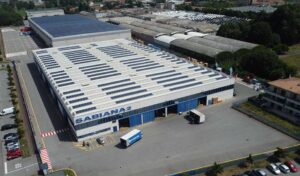CMA keeps watch on internet sales
30th August 2016 UK: The Competition and Markets Authority (CMA) has warned that it is keeping an active watch on the internet for possible breaches of UK competition law.
UK: The Competition and Markets Authority (CMA) has warned that it is keeping an active watch on the internet for possible breaches of UK competition law.
The CMA says suppliers must not take any action that interferes with a retailer’s ability to set their own price of the supplier’s goods online or through other channels. Any attempt to do so is likely to be illegal.
The warning comes following fines on two businesses this year – one being Foster Refrigerator’s parent ITW – for engaging in illegal resale price maintenance (RPM). But the CMA has also warned that you can’t get around the law by taking agreements “offline”.
RPM is where a supplier and a retailer agree that the retailer will not resell the supplier’s products below a particular price. The CMA explains that RPM can also be achieved indirectly, for example as a result of restrictions on discounting or where there are threats or financial incentives to sell at a particular price.
 ITW was fined nearly £2.3m in May for restricting dealers from offering online discounts on Foster commercial fridges. The company admitted that it engaged in resale price maintenance in internet sales of its Foster commercial fridges from 2012 to 2014.
ITW was fined nearly £2.3m in May for restricting dealers from offering online discounts on Foster commercial fridges. The company admitted that it engaged in resale price maintenance in internet sales of its Foster commercial fridges from 2012 to 2014.
Foster was said to have imposed a minimum advertised price policy that restricted the price at which retailers could advertise the supplier’s product online. It enforced this policy by threatening to charge dealers higher cost prices for products, or stopping supply altogether, if they advertised below the minimum price.
The CMA found that preventing retailers from advertising or selling products online below a certain price restricted their freedom to set the price for online sales and, therefore, amounted to illegal RPM in relation to online sales.
“Any agreement, be it verbal or in writing, is equally liable to CMA investigation and enforcement,” says the CMA.
Following the Foster case, the CMA sent warning letters to 20 other businesses in the commercial catering equipment sector which it suspects may have been involved in similar internet sales practices.
The consequences of breaking competition law can be severe: fines can be as much as 10% of a business’ global turnover and directors can be banned from running a company for up to 15 years. In the most serious cases involving price-fixing between competitors, individuals can go to prison for up to 5 years.
Related stories:
https://www.coolingpost.com/uk-news/2-3m-fine-for-illegal-pricing-policy/







